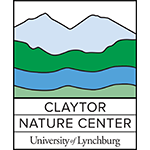The Ramsey-Freer Herbarium (LYN, as designated by Index Herbariorum) is housed in the A. Boyd Claytor III Education and Research Center at the University of Lynchburg’s Claytor Nature Center.
The herbarium’s collection of dried, pressed plants are mounted on special paper and cataloged by their taxological family. The specimens are housed in special metal cabinets and protected from insects.
The herbarium stores a vast amount of botanical data on the flora of Virginia, the Blue Ridge Parkway, the George Washington and Jefferson National Forests, the James River Face Wilderness, the Thunder Ridge Wilderness, the James River watershed, the Peaks of Otter, the Falling River, Percival’s Island, and the Claytor Nature Center, as well as rare, threatened, and endangered species. The specimens are used for teaching and research.
Thousands of these specimens are irreplaceable and are the voucher specimens for county and state records. Some also serve as the basis for many publications. The Ramsey-Freer Herbarium is the major repository for the Blue Ridge Parkway (National Park Service, U.S. Department of the Interior) with over 4,500 sheets.
Our goals are:
- To serve as a teaching and research tool for the University of Lynchburg
- To discover information about the plants and vegetation of Virginia
- To serve as a state and regional resource for cooperative plant research
- To monitor rare, threatened, and endangered plant populations
- To identify plants for the general public
It is a botanical library, museum, history collection, and natural history resource. It represents a source of primary information about explorations and observations, and documents past inquiry into the nature and relationships of plants.
- Was established in 1927
- Has had only three curators in its history
- Possesses almost 60,000 mounted specimens
- Is the longest running research effort at the University of Lynchburg
- Is the second largest plant collection in Virginia
- Is the largest private college herbarium in Virginia
- Is the major repository for plants collected along the Blue Ridge Parkway
- Houses some mounted specimens collected over 110 years ago
- Houses many voucher specimens of taxa found for the first time in many counties and the state of Virginia
- Boasts a superb botanical library curated by four botanists: Dr. Gwynn W. Ramsey, Dr. Ruskin S. Freer, Dr. Elizabeth Sprague, and Dr. Alton M. Harvill
Current Research Emphases
- Vascular Flora of The Peaks of Otter
- Vascular Flora of the Falling River in Campbell County
- Vascular Flora of Percival’s Island
- Flora of the Claytor Nature Center
- Ranunculaceae (Buttercup Family) of Virginia
- Systematic Treatment of the North America Cimicifuga
Publications Resulting from Field and Herbarium Research
Professor Freer published approximately ten journal articles in Claytonia (now the Virginia Journal of Science) and Castanea. Dr. Ramsey has published approximately 25 journal articles in Castanea, SIDA, and the Virginia Journal of Science, and co-authored the book, “Atlas of Virginia Flora.” Dr. Ramsey has published with four former students.
Students
Students have contributed significantly — through class projects or research — to the growth of the herbarium for more than 50 years. Many graduates have contributed important collections to the herbarium from the regions where they take up residence.
Biology or environmental science majors may work part time in the herbarium by serving as laboratory assistants, processing labels, mounting, filing, and performing routine maintenance. In this way, students learn museum techniques and management.
Ongoing digitization work has made the herbarium’s collections available through internet portals. To date, approximately half of the collection has been digitally recorded, and nearly one-third of the collection has a digital record with images attached.
You may digitally access collections through our portal on the SERNEC database.
- See a summary of LYN’s digitized collections.
- Search the LYN dataset on SERNEC.
Loans to reputable educational institutions are temporarily on hold. However, researchers are welcome to visit and utilize the Ramsey-Freer Herbarium.

